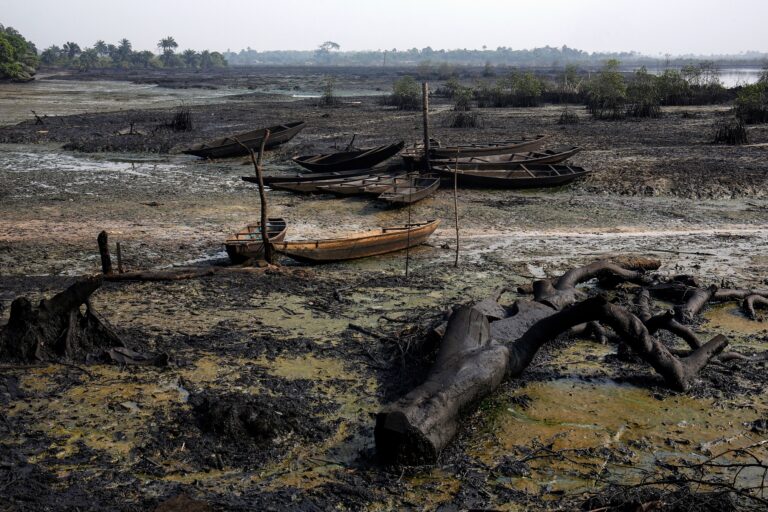The Niger Delta, once rich in natural beauty and biodiversity, has become a shadow of its former self due to decades of unchecked oil extraction by major Western oil firms. Widespread contamination of land and waterways has devastated the region, wiping out farming and fishing livelihoods, polluting the air with constant gas flaring, and leaving entire communities without clean water.
Foreign Oil Giants Abandon Ship
Now, many of these multinational corporations are offloading their aging infrastructure to local Nigerian firms. The motivation is clear: these assets are no longer profitable and come with mounting risks—both environmental and legal. By selling their operations, these companies are also attempting to sidestep accountability for the decades of pollution and suffering endured by communities like Ogale and Bille.
One notable example is TotalEnergies, which recently sold its operations to Chappal Energies for $860 million. Similarly, ENI transferred its holdings to Oando, while ExxonMobil passed its assets to Seplat Energy. All of these transactions received approval from the administration of President Bola Tinubu—a former Mobil Nigeria executive—whose nephew reportedly holds a leadership role at Oando, raising concerns about potential conflicts of interest.
Shell Faces Legal Resistance
Shell, the largest player in the region, also attempted to exit the Niger Delta via a $2.4 billion sale to Renaissance Africa Energy Company Limited, a consortium of four firms. However, this deal was blocked following pressure from NGOs, lawmakers, and Nigeria’s regulatory authorities. In a parallel development, the Ogale and Bille communities have taken Shell to court in the United Kingdom, demanding justice for decades of pollution and neglect.
Shell argues that oil spills are largely the result of pipeline sabotage by oil thieves. In response, Amnesty International—a key advocate for the affected communities—mobilized over 3,500 volunteers from 142 countries to sift through thousands of documents and images. Their findings suggest that deteriorating infrastructure, particularly corroded pipelines, is a major contributor to environmental damage—not theft alone.
Calls for Accountability
Human rights groups, local residents, and environmental advocates are now calling for Shell to fund comprehensive clean-up efforts and provide compensation to those whose lives have been irreversibly altered. As legal battles unfold and scrutiny grows, Nigeria stands at a crossroads—forced to confront not just environmental degradation but also the legacies of exploitation, negligence, and impunity in its oil sector.

